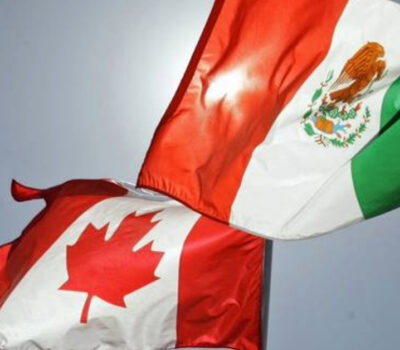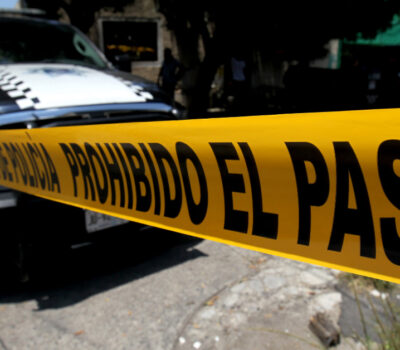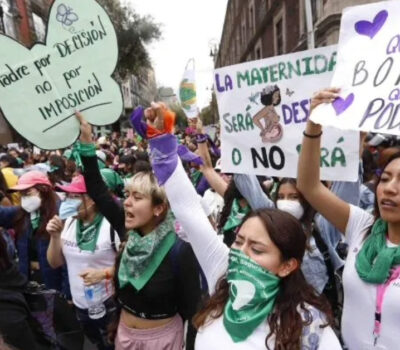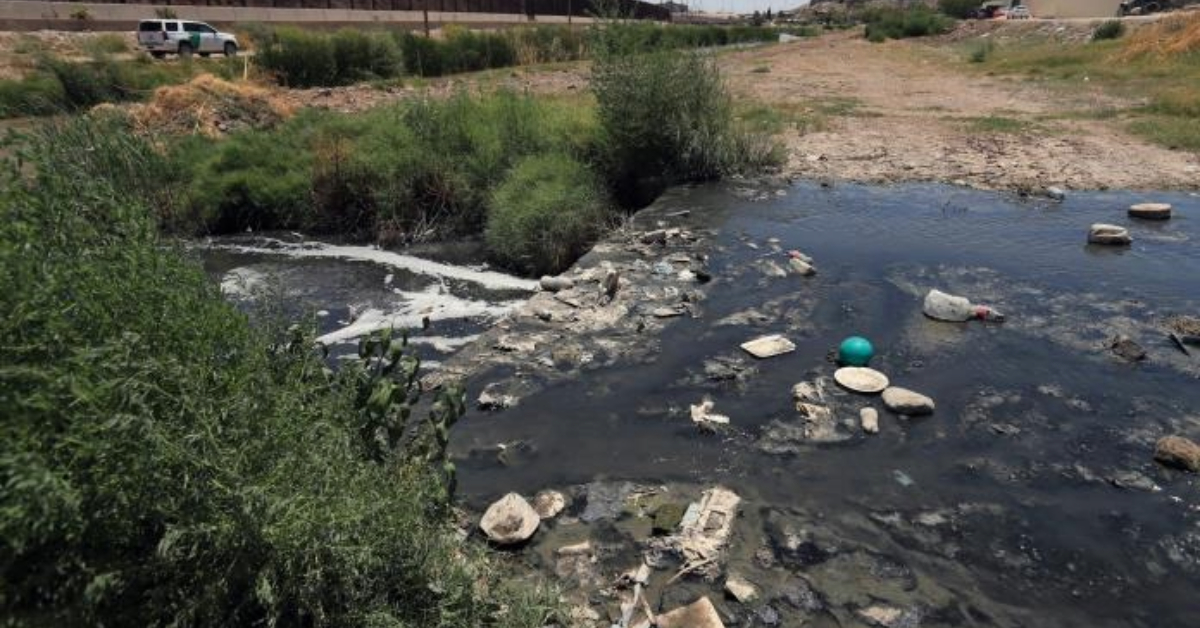Puerto Vallarta, Mexico - In a startling revelation, a recent report by Oxfam has highlighted the disproportionate environmental impact of Mexico's wealthiest individuals. The report, published in conjunction with the 2023 United Nations Climate Change Conference (COP28) in Dubai, reveals that in 2019, the richest 1% in Mexico were responsible for more than 80% of the country's pollution. This figure is particularly striking given that from 2000 to 2019, this affluent segment doubled its carbon dioxide (CO2) emissions, while the rest of the population reduced theirs by 30%.
Oxfam Mexico's executive director, Alexandra Haas, emphasized . . .
CONTINUE READING THIS NEWS ARTICLE BY BECOMING A PVDN SUBSCRIBER!
>> SUBSCRIBE TO OUR NEWS ON WHATSAPP CHANNELS HERE (FROM YOUR CELL PHONE!)<<
Popular posts:
 Purple Flags Raised on Puerto Vallarta Beaches as Jellyfish Presence Prompts Safety Measures Puerto Vallarta, Mexico - In response to the emergence of jellyfish in the waters off Puerto Vallarta's coast, Civil Protection personnel and Lifeguard Firefighters took precautionary measures on Monday by placing purple flags on four prominent beaches. The decision, aimed at safeguarding beachgoers, signals restricted access to swimming areas and water-based recreational activities. The purple…
Purple Flags Raised on Puerto Vallarta Beaches as Jellyfish Presence Prompts Safety Measures Puerto Vallarta, Mexico - In response to the emergence of jellyfish in the waters off Puerto Vallarta's coast, Civil Protection personnel and Lifeguard Firefighters took precautionary measures on Monday by placing purple flags on four prominent beaches. The decision, aimed at safeguarding beachgoers, signals restricted access to swimming areas and water-based recreational activities. The purple… Part of Basilio Badillo Street in Puerto Vallarta is to Close for Two Months Puerto Vallarta, Mexico - In an effort to enhance infrastructure and improve the quality of transportation in the Emiliano Zapata neighborhood, the Puerto Vallarta City Council has announced the closure of a significant section of Basilio Badillo Street. The affected area, spanning from Insurgentes to Aguacate, will undergo extensive paving and infrastructure upgrades over the…
Part of Basilio Badillo Street in Puerto Vallarta is to Close for Two Months Puerto Vallarta, Mexico - In an effort to enhance infrastructure and improve the quality of transportation in the Emiliano Zapata neighborhood, the Puerto Vallarta City Council has announced the closure of a significant section of Basilio Badillo Street. The affected area, spanning from Insurgentes to Aguacate, will undergo extensive paving and infrastructure upgrades over the… Puerto Vallarta Sees Surge in Canadian Tourists, Targets Increased Connectivity Puerto Vallarta, Mexico - Amidst the breathtaking backdrop of its azure beaches and vibrant culture, Puerto Vallarta has witnessed a substantial influx of Canadian tourists during the initial months of this year. Surpassing the 160,000 mark, the city has emerged as the second-most favored destination in Mexico among its northern neighbors. Data disclosed by the…
Puerto Vallarta Sees Surge in Canadian Tourists, Targets Increased Connectivity Puerto Vallarta, Mexico - Amidst the breathtaking backdrop of its azure beaches and vibrant culture, Puerto Vallarta has witnessed a substantial influx of Canadian tourists during the initial months of this year. Surpassing the 160,000 mark, the city has emerged as the second-most favored destination in Mexico among its northern neighbors. Data disclosed by the… Public Urged to Maintain Vigilance in Banking Transactions to Prevent Theft in Puerto Vallarta Puerto Vallarta, Mexico - In Puerto Vallarta, the call for heightened vigilance during banking transactions reverberates through the community as authorities emphasize the importance of proactive security measures to deter potential theft incidents. The Directorate of Preventive Police and Municipal Roads underscores the shared responsibility of safeguarding public order and the property of residents, emphasizing…
Public Urged to Maintain Vigilance in Banking Transactions to Prevent Theft in Puerto Vallarta Puerto Vallarta, Mexico - In Puerto Vallarta, the call for heightened vigilance during banking transactions reverberates through the community as authorities emphasize the importance of proactive security measures to deter potential theft incidents. The Directorate of Preventive Police and Municipal Roads underscores the shared responsibility of safeguarding public order and the property of residents, emphasizing… Woman Fatally Shot by Husband in Puerto Vallarta On Tuesday evening, the Puerto Vallarta Municipal Police responded to a distress call from the medical personnel at the Social Security Clinic 42 Hospital. The call, received just minutes before 5:40 pm, reported a woman's death due to gunshot wounds. The incident unfolded when authorities were alerted to a grievous situation, indicating a domestic tragedy.…
Woman Fatally Shot by Husband in Puerto Vallarta On Tuesday evening, the Puerto Vallarta Municipal Police responded to a distress call from the medical personnel at the Social Security Clinic 42 Hospital. The call, received just minutes before 5:40 pm, reported a woman's death due to gunshot wounds. The incident unfolded when authorities were alerted to a grievous situation, indicating a domestic tragedy.… Puerto Vallarta Azteca International Folklore Festival Kicks Off Puerto Vallarta, Mexico - The vibrant hues of tradition and the rhythmic beats of folklore filled the air as the 18th edition of the Vallarta Azteca International Folklore Festival (FESTVA) commenced last Sunday afternoon. With over a thousand dancers and musicians hailing from 11 states across Mexico and six invited countries, the festival promises a…
Puerto Vallarta Azteca International Folklore Festival Kicks Off Puerto Vallarta, Mexico - The vibrant hues of tradition and the rhythmic beats of folklore filled the air as the 18th edition of the Vallarta Azteca International Folklore Festival (FESTVA) commenced last Sunday afternoon. With over a thousand dancers and musicians hailing from 11 states across Mexico and six invited countries, the festival promises a… Authorities Investigate Alleged Shark Sighting at Camarones Beach in Puerto Vallarta Puerto Vallarta, Mexico - The tranquil shores of Camarones Beach in Puerto Vallarta were momentarily disrupted by reports of a shark sighting, prompting swift action from local authorities and lifeguard personnel to ensure public safety. According to a report received by emergency services via 911, a potential shark sighting was reported at Playa Camarones. In…
Authorities Investigate Alleged Shark Sighting at Camarones Beach in Puerto Vallarta Puerto Vallarta, Mexico - The tranquil shores of Camarones Beach in Puerto Vallarta were momentarily disrupted by reports of a shark sighting, prompting swift action from local authorities and lifeguard personnel to ensure public safety. According to a report received by emergency services via 911, a potential shark sighting was reported at Playa Camarones. In… Puerto Vallarta Gears Up for Thrilling 34th Edition of the International Sports Classic Puerto Vallarta, Mexico - Puerto Vallarta is set to welcome athletes and sports enthusiasts from across North and South America for the much-anticipated Puerto Vallarta International Sports Classic 2024. Commencing on May 2nd and running through May 5th, this annual sporting extravaganza promises to be an unforgettable experience for participants and spectators alike. Since its…
Puerto Vallarta Gears Up for Thrilling 34th Edition of the International Sports Classic Puerto Vallarta, Mexico - Puerto Vallarta is set to welcome athletes and sports enthusiasts from across North and South America for the much-anticipated Puerto Vallarta International Sports Classic 2024. Commencing on May 2nd and running through May 5th, this annual sporting extravaganza promises to be an unforgettable experience for participants and spectators alike. Since its… Jalisco Advances in Abortion Decriminalization: Legal Victory Overturns Prohibition Puerto Vallarta, Mexico - In a landmark decision, the Second Collegiate Court on Criminal Matters of the Third Circuit in Jalisco has unanimously overturned the prohibition on abortion in the state's Penal Code. This legal victory marks a significant milestone in the ongoing battle for abortion rights, where judicial action has succeeded where political avenues…
Jalisco Advances in Abortion Decriminalization: Legal Victory Overturns Prohibition Puerto Vallarta, Mexico - In a landmark decision, the Second Collegiate Court on Criminal Matters of the Third Circuit in Jalisco has unanimously overturned the prohibition on abortion in the state's Penal Code. This legal victory marks a significant milestone in the ongoing battle for abortion rights, where judicial action has succeeded where political avenues… Puerto Vallarta Celebrates Cultural Exchange at FESTVA 2024 With Doll Exhibition Puerto Vallarta, Mexico - In a vibrant display of cultural unity, Puerto Vallarta welcomed participants from across the globe to the 18th edition of the Vallarta Azteca Festival of International Folklore (FESTVA) 2024. Councilor Pablo Ruperto Gómez Andrade, expressing the city's pride in its reputation as one of the friendliest in the world, inaugurated the…
Puerto Vallarta Celebrates Cultural Exchange at FESTVA 2024 With Doll Exhibition Puerto Vallarta, Mexico - In a vibrant display of cultural unity, Puerto Vallarta welcomed participants from across the globe to the 18th edition of the Vallarta Azteca Festival of International Folklore (FESTVA) 2024. Councilor Pablo Ruperto Gómez Andrade, expressing the city's pride in its reputation as one of the friendliest in the world, inaugurated the…


